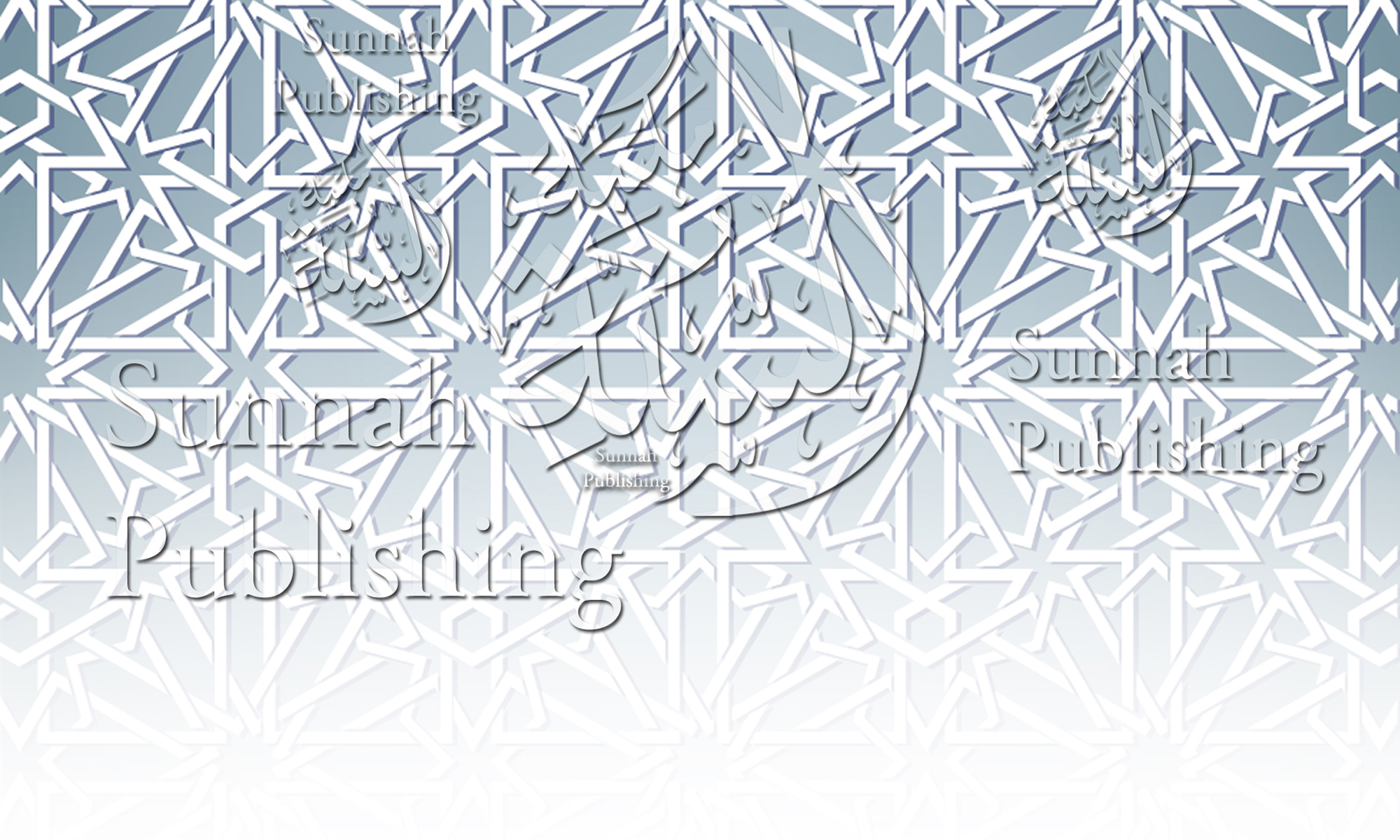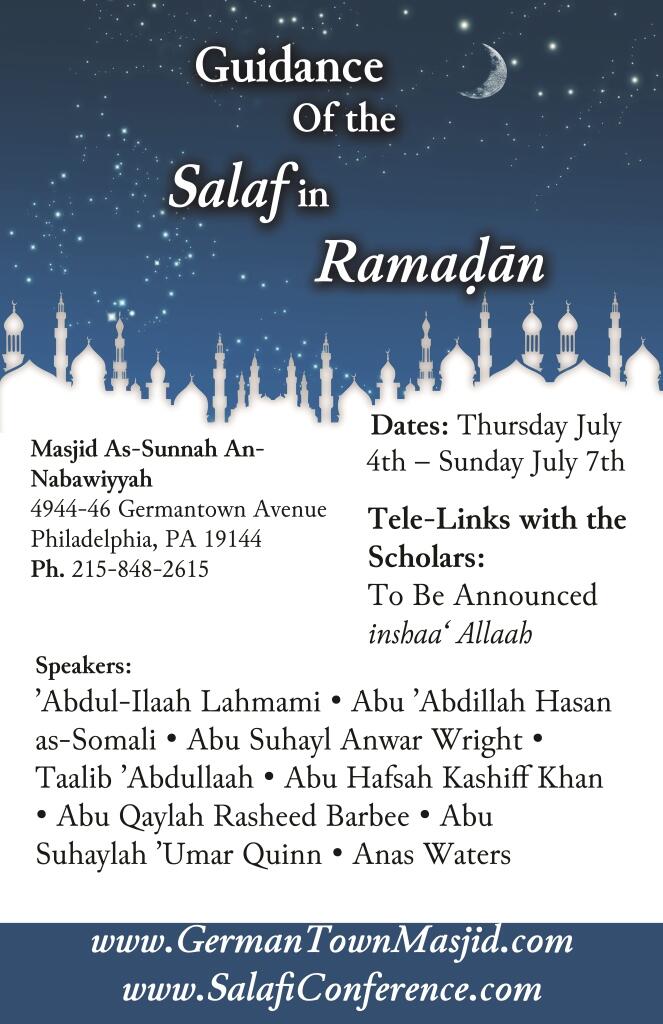[Q]: The questioner says: It has been spread that the fitnah (trial, tribulation) of al-Jarh wat-Ta’deel splits up the Ummah and speaking out against the people of innovation causes separation within the Ummah, especially those living in the western countries. So they split up and distort the representation of Islaam by way of their speech against the mashaayikh, ‘This one is a hizbee (biased partisan),’ and the likes of that.
[A]: O my son, the Shaytaan has caused this rumour to circulate upon everyone’s tongues against Ahlus-Sunnah wal-Hadeeth. The theme of the gathering is clear, so why do you beat about the bush and wander around by mentioning these ambiguities?! Allaah the Glorified and Exalted has refused, except to separate between the truth and the falsehood and the guidance and the misguidance. So why do you generalize?
Have you not come across the hadeeth, which mentions the procession of nations (umam)? It occurs in the Saheehayn (i.e. the hadeeth collections of al-Bukhaaree and Muslim). The Prophet (sallallaahu ’alayhi wa sallam) said, “I saw a Prophet passing and he had with him a raht – it is said this is a group of three to ten people – and a Prophet would pass and he would have with him three followers, and another would have two. And a Prophet would pass and he would only have one man with him. And a Prophet would pass and he would not have anyone with him.” [1] This Prophet who will have no one with him, was he sent to himself only? Of course not! He was sent to a nation (ummah). However, that nation rejected his call. And Ahlus-Sunnah never gossip about anyone, ever. They only refute the innovation with evidence. And consideration is not given to a large following, consideration is given to obtaining the truth.
The Shaykh, Muhammad Ibn ’Abdul-Wahhaab (d.1206H) – rahimahullaah – the Imaam of the da’wah and the reviver in the middle of the twelfth Hijree generation, the one who was aided by his brother, al-Ameer Muhammad Ibn Sa’ood – rahimahullaahul-jamee’ – derived rulings from this hadeeth, from them: that it is not permissible to forsake a small following, nor is it permissible to have high regard for a large following. [2]
And this is in agreement with a beautiful statement from al-Fudayl Ibn ’Iyaad (d.187H) – rahimahullaah – who said, “Hold fast to the paths of guidance and the scarcity of followers will not harm you. And beware of the paths of misguidance and do not be deceived by the large numbers of those who are destroyed.” [3] So the majority have never been mentioned in a praiseworthy manner, ever. [4] We would love that the heads of disbelieving nations accept Islaam and remain upon the Sunnah: the president of America, the president of Russia, the king of Holland, the president of Poland and other than them. We would love that they accept Islaam and remain upon the Sunnah, we do not dislike Islaam and the Sunnah for anyone and we invite them with wisdom and a beautiful admonition.
Endnotes:
[1]: Related by al-Bukhaaree (no. 5420), Muslim (no. 323) and Ahmad in al-Musnad (no. 2444).
[2]: Shaykhul-Islaam Muhammad Ibn ’Abdul-Wahhaab (d.1206H) – rahimahullaah – said, “The fruit of this knowledge is to not have a high regard for a large following and to not forsake and be disheartened by a small following.” Refer to Fathul-Majeed (p. 90), with the comments of Imaam Ibn Baaz and the checking of Shaykh Muhammad Haamid al-Fiqee.
[3]: Refer to al-I’tisaam (1/135) of ash-Shaatibee. Sufyaan Ibn ’Uyaynah (d.197H) – rahimahullaah – said, “Traverse the path of truth and do not feel lonely due to the few people upon it.” Related by Ibn ’Abdul-Barr in at-Tamheed (17/429).
[4]: BENEFIT – Imaam Muhammad Naasirud-Deen al-Albaanee on the Scarcity of Those who Answer the Da’wah: The Messenger of Allaah (sallallaahu ’alayhi wa sallam) said, “No Prophet from amongst the Prophets will have as many followers as me. Indeed, there will be from amongst the Prophets he who had no one believing in him, except one man.” Related by Muslim (1/130).
Imaam Muhammad Naasirud-Deen al-Albaanee (d.1420H) commented upon this hadeeth, saying, “In this hadeeth is a clear proof that the abundance of followers, or lack thereof is not the measuring standard that indicates whether the caller is upon truth or falsehood. So even though the da’wah of these Prophets – ’alayhimus-salaatu was-salaam – was one and their Religion was one, their varied with regards to the numbers of their followers. Some of them had many and some of them had a few, to the extent that some had no one to believe in them except one man. Rather, there was from amongst them he who had not a single follower!
So in this is a profound lesson for the callers and those who are being called in this age of ours. So it is obligatory upon the caller to remember this reality. He must remain for a long time in the path of calling to Allaah the Exalted, and he must not pay any attention to the scarcity of those who answer him, because there is nothing upon him, except to convey the message clearly. And he has the best example in the previous Prophets who did not have anyone with them other than one or two men!
So the one being called upon must not despair due to the scarcity of those who answer the caller, and he must not take that as a reason for doubting in the da’wah of truth and thus abandon eemaan (faith) in it, let alone that he would take that as an indication of the falsity of the da’wah with the argument that no one is following this caller, or that only a few are following him. And if his da’wah were truthful, the majority of the people would not follow him! Allaah the Mighty and Majestic said,
“And most of mankind will not believe, even if you desire it eagerly.” [Soorah Yoosuf 12:103].”
Refer to Silsilatul-Ahaadeethis-Saheehah (no. 397) of al-Albaanee.
Translation by Maaz Qureshi

